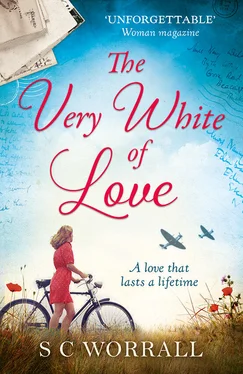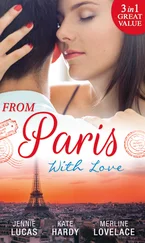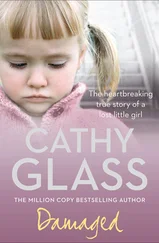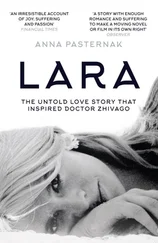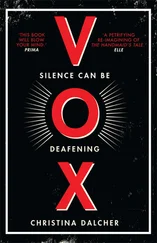‘No war!’ a heckler shouts from the back of the hall.
The President holds up his hand for silence. ‘And I am pleased to welcome three eminent speakers, who will debate the question from their own different, unique viewpoints.’ He turns and motions to the three speakers. ‘The Right Honourable Stephen King-Hall.’
There are a few boos.
‘ . . . Captain Basil Liddell Hart . . . ’
Liddell Hart waves, cheered by a group of undergraduates in the gallery.
‘And, last but not least, the Right Honourable Randolph Churchill.’ A cacophony of cheers and hissing erupts. Churchill waves, in an avuncular manner.
In 1933, he spoke in favour of war and a student hurled a stink bomb at him. There are a few jeers and whistles from the pacifists in the hall. But the hubbub soon dies down.
‘I now invite the Right Honourable Stephen King-Hall to debate our motion,’ booms the President. ‘Should conscription be reintroduced?’
Cries of ‘No!’ and ‘Yes!’ echo round the hall, a mixture of boos and cheers. Martin is torn in his views about the possibility of war. His Uncle Robert’s stories and poems about the horrors of the Great War have made him instinctively opposed to military conflict as a means of solving problems, and the sort of bellicose rhetoric espoused by Randolph Churchill, which is why he is a strong supporter of the League Of Nations. On the other hand, he has come to believe that Hitler presents such a threat to Europe that, if Britain does go to war, he will do his duty and join up. Even if it means being away from Nancy.
‘Looks like this is going to be quite a firecracker,’ he says as King-Hall gets up and goes to the dispatch box. He is smartly dressed in a dark suit, white shirt and tie. His polished head gleams under the lights.
‘Mr President, as many of you know, I served in the Navy during the last war.’ He looks up at the gallery. ‘My service on HMS Southampton showed me what war can do. The terrible toll in blood and gold. The sacrifice of tens of thousands of young men, in the flower of their youth.’
He looks out at the sea of young faces in front of him. ‘But there is another way of winning a war.’ A few boos start to echo round the hall. ‘Non-violent resistance.’ He pronounces each word singly, and with emphasis.
The hissing gets louder. Someone in the gallery shouts: ‘Communist!’
‘Here we go . . . ’ Martin nudges his friend.
‘Order! Order.’ The President gets to his feet. ‘I would like to remind the house that booing or hissing a speaker is both a grave and a pointless discourtesy, and an abuse of the forms of the House!’
More cheering and booing. King raises his voice: ‘But what are the principles of non-violent resistance?’ He looks out into the packed hall. ‘In conventional military thinking, occupation by enemy forces represents the end of the war and victory for the enemy. However, in the case of non-violent resistance, such thinking is wrong!’
Someone at the back of the hall shouts: ‘Rubbish!’ Others turn and hurl insults at him. There is more hissing and wolf-whistling
King struggles on. ‘ . . . by shifting the area of conflict into the sphere of non-violence, using techniques like civil disobedience, non-violent demonstrations, sit-ins, go-slows, . . . ’
Next up is Basil Liddell Hart, the well-known military strategist and writer. His ascetic features and steel-rimmed glasses give him the appearance of a Russian intellectual.
‘This should be interesting,’ Hugh says under his breath. ‘He’s a brilliant speaker.’
‘There are many reasons to oppose conscription,’ Hart begins. More boos echo round the hall. ‘First, it is impracticable. Soldiers need to be trained. But we have neither enough men nor enough qualified instructors. More importantly, conscription is alien to a democratic society!’
A wave of applause and cheers rises from the crowd. Their opponents shout, ‘Nonsense!’
‘Whatever the case for compulsory service in an earlier generation, when other democratic nations adopted it, it is inevitably affected now by the fact that we are threatened by nations who have made it not merely a means but an end – a principle of life . . . ’
There is cheering. A group of students in the gallery drum on the balustrades.
‘ . . . and for us to adopt compulsory service under pressure of their challenge would be a surrender of our own vital principles – and admission of spiritual defeat.’
There is thunderous applause, interspersed with a few boos. Martin looks at Hugh and raises his eyebrows.
‘He’s right, of course. But I can’t see him winning, can you?’
‘Not a chance.’ Hugh shakes his head. ‘You’re for fighting, aren’t you?’
‘Of course. If nothing else works. I just wish the League of Nations had some real teeth,’ says Martin, remembering his conversation with Nancy last November.
‘You might have to wait a long time for that,’ says Hugh, dismissively.
Hart leaves the dispatch box and returns to his seat to prolonged applause. The President gets up again. ‘Our final speaker, ladies and gentlemen, needs no introduction . . . ’
Martin has only seen Randolph Churchill in photographs. In the flesh, the young MP is even more different from his famous father. The face is gaunter, more sallow, the shoulders narrower. A red silk handkerchief pokes from his breast pocket.
‘Good evening, ladies and gentlemen.’ His plummy voice is drowned in a wave of applause, mixed with catcalls and whistles.
‘Tory scum!’ a bearded student in a donkey jacket shouts from the gallery.
Churchill ignores him. Martin rolls his eyes. ‘It is now nearly six years since this House adopted that shameful pledge not to fight for King and Country.’ A barrage of insults and jeers erupts from sections of the crowd. Others cheer and clap. ‘An oath my father, Winston Churchill, rightly called . . . ’ He lets the pause hang in the air, then raises his voice. ‘Abject. Squalid. And shameless!’ A wave of foot stomping echoes round the hall. ‘Since then—’ His voice is drowned out by catcalls and whistles. ‘Since then, Herr Hitler has continued to arm Germany at an alarming rate.’
The mention of Hitler’s name elicits a chorus of boos and hissing. Churchill raises his hand. ‘And, as a result, this great country that we love . . . ’ he leans against the dispatch box, letting his words sink in ‘ . . . now faces a threat more grave than any in the last thousand years.’
Someone shouts: ‘Hear, Hear!’ Churchill brings the palm of his hand down on the dispatch box with a loud bang. ‘Across the Channel, for the last three years, a war has been going on for the hearts and minds of the French people, as Nazi propaganda attempts to poison the minds of our allies.’ He thumps the dispatch box for a second time. His voice drips with disdain. ‘A war we are losing.’
Martin and Hugh exchange glances as more cheers, even louder this time, echo round the red-painted walls of the debating chamber. People begin to stamp their feet. Martin does not join in.
‘Yet, here, in Great Britain, we have so far only made . . . ’ he sneers ‘ . . . gestures of defiance.’ Martin feels Churchill’s eyes as he rakes the hall with a glare. ‘But we have reached a point where gestures are not enough!’
A shout goes up from the gallery: two students are flailing their fists. Others join in. The noise gets louder and louder. Churchill pulls the red handkerchief from his breast pocket, mops his brow. ‘We want not only gestures,’ he calls out to the crowd, letting the words sink in. ‘We want an army!’ Another wave of stamping and cheering erupts from the crowd. Churchill presses his hands down on the dispatch box, stares defiantly out at the crowd, and roars: ‘And that quite soon!’
Читать дальше
